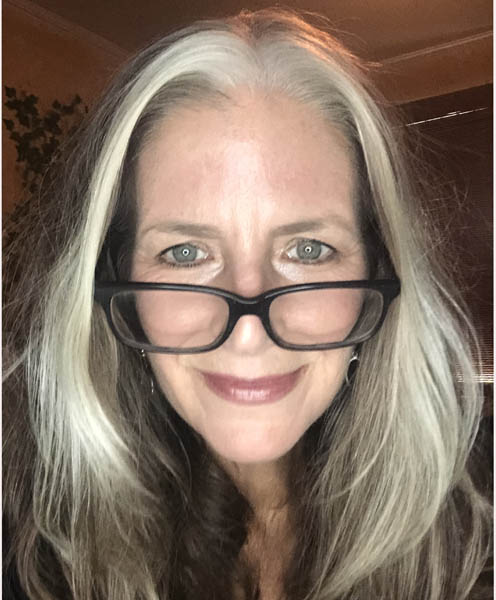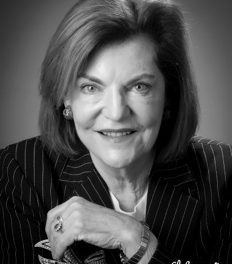My college friend Tommy, a portrait artist, often does small pieces he calls “studies” before painting a full-blown portrait. The “study” for the following essay languished on my blog for a couple of years before I finally fleshed it out and published it here… seven years ago.
Yes, after two-plus decades of columnizing, I occasionally recycle. But only if the column still feels relevant. Unfortunately, this one does. In spades. I have inserted a few editorial comments and updates, but the bones are the same.
It starts with a conversation at the Old Bull Tavern . . .
“We really love our son’s new girlfriend,” someone told me over happy hour drinks the other night. “She’s a great person. Really aware . . . Really conscious . . . “
“But is she nice?” I wondered silently, keeping the question in my head, like a nice girl.
You hear a lot of talk about consciousness these days. It’s all the rage. Though not one of the seven “cardinal” ones, it’s a highly prized virtue in contemporary society. I strive to cultivate it, myself.
When you hear people talking about “consciousness,” they’re typically referring to a heightened awareness of the wider world – environmental issues, human rights, the ethical treatment of animals, and other genuinely important concerns. “Conscious” people, in particular, often claim a higher awareness of their connection with each other and all of humanity. You often hear them say things like “we’re all connected” and “we’re all one.” They post these statements on Facebook in pretty little boxes with floral trim.
But here’s something interesting I’ve noticed: In my travels through social media, I’ve discovered that hyper-conscious humans are often quite contemptuous of humans who aren’t. Much of the time, the super-conscious do not seem to feel “connected” or “one” with the sub-conscious at all.
Lately, the most proudly conscious among us can often be seen boasting that they’ve just “blocked” this friend or “unfollowed” that friend on Facebook. One particularly conscious fellow – middle-aged, like me – publicly shared that an old high school classmate had reached out to him with a friend request, and he’d responded with a message saying, “It’s great to hear from you, but if you’re supporting Donald Trump, let’s just save ourselves the trouble.” The classmate confessed to being a Republican, and a lukewarm Trump voter, so the connection fizzled instantly. Touching reunion, huh?
(Editorial note from 2023 – I’m aware that for most readers, the stakes are even higher today than they were seven years ago when I first published this piece. But my general thesis stands. In fact, I believe our current “situation” is, in large part, a result of the dynamic I’m describing.)
Now, it’s election season and it’s ugly out there. I get that. All this blocking and unfollowing and unfriending is a natural response. But it occurs to me that it might also represent – ironically – a failure of consciousness.
Because here’s the proverbial “thing”: For some people (poets, prophets and artists, for instance), consciousness comes rather naturally. It’s almost like a gift – a God-given talent. For most everybody else, consciousness must be cultivated.
We come into this world kicking and screaming, red of face and utterly selfish, conscious of very little beyond our own gaping maw of creature-neediness. As we grow, we develop that outward gaze – that thing we call consciousness – to differing degrees at different paces. There are many reasons why some people never develop a high level of consciousness – or come to consciousness later than others – and those reasons are typically circumstantial, not intentional.
Sometimes, it’s a matter of under-privilege. Many people just don’t have the opportunity to travel outside their own limited, closed-off cultural spheres – literally or figuratively. Some spend all their time working mundane jobs just to get by, then fall into bed exhausted at night, only to start the whole thing over again in the morning. Some have little time or energy to read books and explore ideas; or they have nobody at home – or even in the neighborhood – encouraging them to do so. That kind of “unawareness” is eminently forgivable, it seems to me. Those people deserve mercy, not scorn. They need our friendship, not our “unfriending.”
Some people, on the other hand, are too privileged. They’ve had their lives dished up on a shiny silver serving tray; everything’s been too easy. They have never wanted or needed for anything and have not (yet) been blessed with the gift of suffering, which breeds compassion. They’re insensitive to the struggles of others because they’ve never struggled. Their lack of experience has rendered them ignorant. It’s a kind of ignorance that’s hard for the rest of us to forgive – but it’s ignorance, nevertheless. It’s a “not knowing,” and it’s not necessarily permanent.
And then, there are those who are just . . . stuck. Stuck in “the way it’s always been” or “the way we’ve always done it” – frozen in place by all the flashing images and shrill voices and conflicting “truths” that come flying at the postmodern human from every direction, all the time, 24 hours a day. These people hunker down with their habits and their long-held opinions – some good, some not so good – because it feels safer and less confusing. Insecurity . . . confusion . . . stagnation. Have we never experienced these things? Have we no empathy?
Since I’m not a geneticist, I won’t even get into our differing DNA, but that would open up a whole ‘nother can of worms…
Bottom line: I don’t believe most people choose to be unconscious, unaware, unmindful, un-awakened.
They just are . . . until they aren’t anymore.
(Inserting a “fun fact” here, from the perspective of 2023: When I wrote this piece almost a decade ago, it seems I was not yet conscious, aware, or mindful of the now ubiquitous term “woke,” which would have come in quite handy.)
Unconsciousness is its own kind of prison – lonely, isolating, self-limiting. You never know what will unlock the door, releasing the unwitting inmate, but I’m pretty sure it won’t be contempt. Contempt never opened a pair of eyes, and it definitely never opened a heart. If we who fancy ourselves “conscious” can’t see that – and expand our seeing into loving – then maybe we’re not as conscious as we think.
There are so many humans hating other humans – in cyberspace and beyond – and hatred has never healed anybody. If consciousness is “knowing,” then shouldn’t we, The Conscious, be the ones who know better? If consciousness doesn’t breed loving kindness – if it doesn’t help free prisoners – I’m not sure it deserves its current status in the pantheon of virtues.
Maybe that’s why it didn’t make the Big Seven back in the day.







